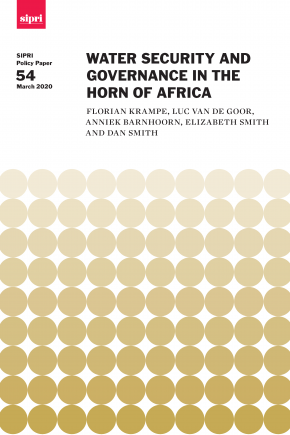Water Security and Governance in the Horn of Africa

Climate-related security risks are increasingly compounding existing political, social and economic challenges worldwide, with natural resources like water posing risks for geopolitical tensions and violent conflict. This policy paper presents a regional analysis of environment, peace and security linkages in the Horn of Africa, with a specific focus on water security and governance. It provides entry points for the international community to address the multifaceted risk landscape in the region.
The Horn of Africa is highly vulnerable to the impacts of climate change such as droughts and floods. The transboundary water resources of the Nile and Juba–Shabelle river basins are of core relevance for the Horn of Africa because of the interaction and confluence of several political, social, economic and environmental processes. The tensions surrounding transboundary water resources retain the potential for geopolitical tensions and violent conflict within and among countries in the region.
Posing challenges to peace and development in every continent, water security and governance can no longer be left unaddressed by the international community. This policy paper identifies political constraints and possible entry points for the international community to address the multidimensional challenge of water security and governance in the Horn of Africa.
1. Introduction
2. Background
3. The Nile and Juba–Shabelle basins
4. Political constraints and possible entry points




